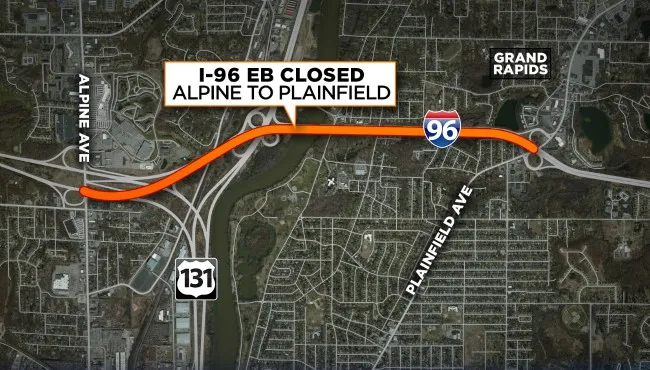Introduction
In an unfortunate event underscoring the ongoing battle against digital scams, a woman from Hudsonville has been duped by a text message scam targeting customers of the Illinois Tollway. This scenario raises greater concerns about online safety, especially in the realm of financial transactions. With scammers increasingly using sophisticated tactics, state agencies are compelled to act swiftly in order to protect their constituents. The Illinois Tollway Authority has since issued an urgent statement advising customers on how to avoid falling victim to these deceitful practices.
The Hudsonville Incident
The predicament began when the woman in Hudsonville received a text message that appeared to be from the Illinois Tollway. The message contained alarming language, stating that she had unpaid toll fees and that immediate action was required. The message concluded with, “This is your LAST WARNING,” attempting to instill fear and urgency.
Believing the message to be legitimate, she followed the directions provided, which unfortunately led to her divulging personal information, including banking details. This trust misplaced can lead to severe consequences, including identity theft and financial loss. The woman’s experience serves as a poignant reminder of the dangers associated with unsolicited digital communication.
Understanding Phishing Scams
Phishing entails tricking individuals into disclosing sensitive information such as usernames, passwords, and credit card numbers. Scammers often craft sophisticated messages by mimicking legitimate organizations, making them look credible. In the age of the internet, where communication occurs rapidly, it’s easy for unsuspecting individuals to become victims.
Common characteristics of phishing texts include:
- Urgency or threats
- Generic greetings that don’t address the recipient by name
- Links to unverified websites
- Requests for personal information or payment
Illinois Tollway’s Response
In light of this recent incident, the Illinois Tollway Authority has stepped up its efforts to raise awareness about such phishing scams. In an official statement, the authority declared, “We do not send text messages requesting personal information or demanding immediate payment for unpaid tolls.” Their message is clear: if you receive such texts, do not engage; instead, report them to the authorities.
The Tollway also emphasizes that official communications will always come from verified channels. They encourage users to inspect any message closely and to confirm its legitimacy through the official website or customer service channels.
Steps to Protect Yourself
While the Illinois Tollway provides valuable guidance, it ultimately falls upon each individual to remain vigilant against these threats. Here are some steps that everyone can take to protect themselves from falling prey to similar scams:
1. Verify the Source
Always cross-check the sender of any message you receive. Official organizations will use recognizable phone numbers or email addresses. If unsure, visit their official website for contact information.
2. Don’t Click Links
Phishing scams frequently include links to counterfeit websites aimed at stealing your information. Rather than clicking the link in the text, visit the website directly through your browser.
3. Avoid Sharing Personal Information
Never disclose meaningful personal or financial details through unsolicited messages or calls. Legitimate organizations will never ask for sensitive information via email or text.
4. Report Suspicious Messages
If you receive a suspicious text or email, report it to the relevant authorities. In the case of the Illinois Tollway, information can be submitted through their customer service avenues. Reporting can help safeguard other customers and prevent further scams.
Raising Public Awareness
Public awareness campaigns have become essential in combating phishing scams. The Illinois Tollway Authority intends to adopt a proactive approach, perhaps by launching educational programs targeting various demographics. This proactive education could equip individuals with the know-how to recognize and appropriately respond to phishing attempts.
Moreover, the agency could benefit from collaborations with local news outlets, schools, and community organizations to distribute materials detailing how to identify phishing scams. Informative workshops, social media campaigns, and community seminars may also deter potential victims.
Conclusion
The incident with the Hudsonville woman is a cautionary tale and underscores the critical importance of digital literacy in today’s world. As scam tactics become more sophisticated, public awareness and vigilant behavior are paramount. The Illinois Tollway has acted decisively in issuing warnings and advice to help protect its customers. However, it ultimately remains a shared responsibility among consumers to stay informed and cautious.
Awareness, education, and proper channels for reporting can collectively create a safer digital environment for all. Let’s stay vigilant and spread the word to help ensure that we do not fall prey to digital deception. Remember, there’s no such thing as ‘the last warning’ when it comes to legitimate communication—always verify before you trust.







